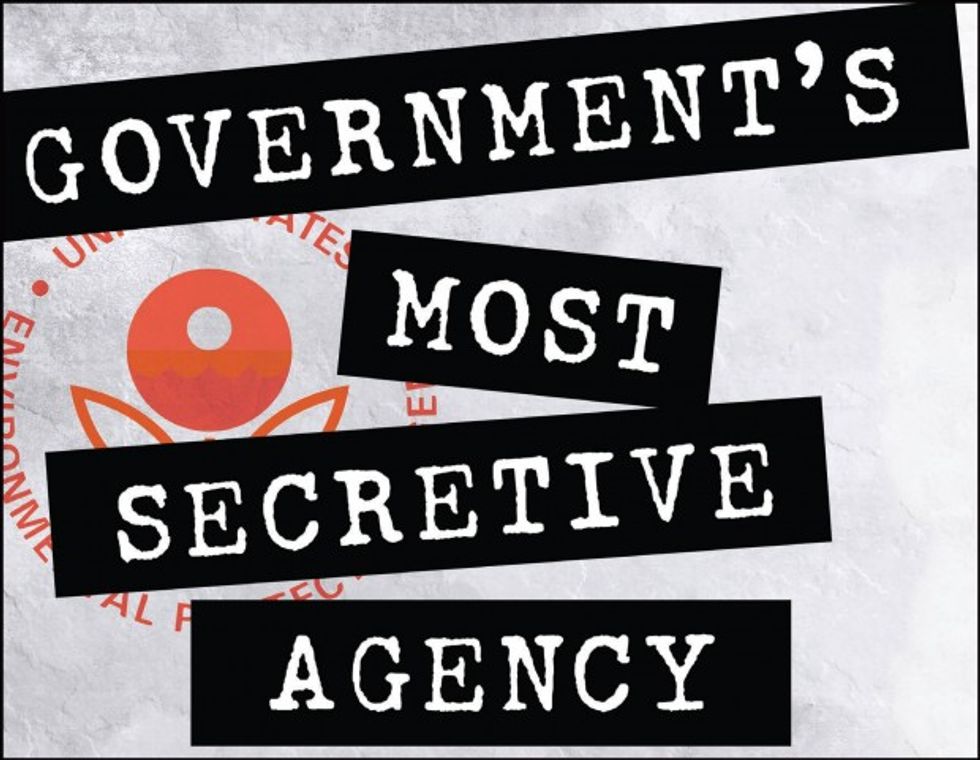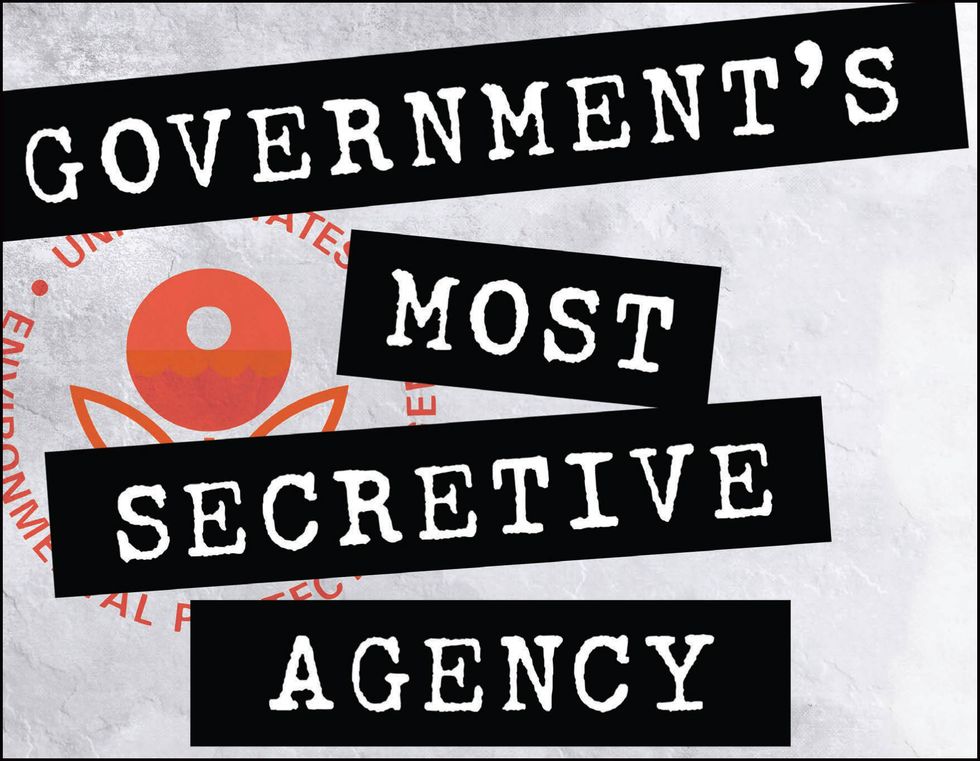
© 2025 Blaze Media LLC. All rights reserved.
From secret, unidentifiable email addresses to destroyed records to far-left pressure groups funded by billionaire progressives, the EPA has something to hide.
From secret, unidentifiable email addresses to destroyed records to far-left pressure groups funded by billionaire progressives, the EPA has something to hide. And they’ll try to take down anyone who dares demand transparency.
It was called the “fishbowl memo,” sent to all employees of the Environmental Protection Agency by Lisa Jackson, the agency’s first administrator under President Barack Obama.
“The American people will not trust us to protect their health or their environment if they do not trust us to be transparent and inclusive in our decision-making,” Jackson wrote. “To earn this trust, we must conduct business with the public openly and fairly.”
The memo’s sentiment was correct. The American people don’t have a reason to trust the EPA, but Jackson became a key part of that problem by doing anything but conducting business with the public openly.
****Get more exclusive reports in TheBlaze Magazine****
The “fishbowl memo” was written in April 2009, not long after newly sworn-in President Obama promised transparency would be the touchstone of his administration. Today, the EPA may stand as the best example of how that pledge fell so short.
Instead of adhering to the principles of the “fishbowl memo,” the EPA officials have used phony email identities, blocked access to information from the press and Congress, destroyed government records, refused to disclose data used to justify regulation, and misinformed human test subjects. A federal judge even called the agency’s excuses for withholding information “implausible.”
With their minority status, Republicans on the Senate Environmental and Public Works (EPW) Committee have been trying to cut through some of the secrecy and issued several investigative reports. Now the committee is controlled by the new Republican majority and is in a position to compel the EPA to cough up more information to the public.
“Working to increase transparency at EPA is a major priority, especially considering how little the Obama EPA is willing to share with Congress and the American public, and also what great lengths they go to hiding their agenda,” EPW Committee member Sen. David Vitter, R-La., told TheBlaze. “EPA needs to stop using secret science to justify their wildly expensive, and often unnecessary, rules and regulations, but the Obama administration doesn’t seem to recognize that.”
Secrecy alone is not the only problem. Even the biggest transparency advocates get it that some government agencies like the Defense Department, the National Security Agency and the Central Intelligence Agency have to keep some things secret at the end of the day. That’s not true of an agency like the EPA, where secrecy seems motivated by political reasons.
“I don’t think any agency can compare with this agency” for keeping secrets from the public, Chris Horner, a senior fellow and legal counsel at the Competitive Enterprise Institute, told TheBlaze.
The ‘Implausible’ Excuse on the ‘Cyber Bonfire’
On one matter, the EPA could be engaged in criminal activity, carrying up to three years in prison under 18 U.S. Code 207, Horner said.
“The destruction of records is a criminal offense, a felony, with up to three years [in prison], which is why EPA is saying strange things like there is no evidence any records have been destroyed in the cyber bonfire,” Horner said.
****Get more exclusive reports in TheBlaze Magazine****
Critics say the agency is blatantly violating the Freedom of Information Act, or FOIA, and the Federal Records Act, or FRA. FOIA requires that in most cases, the government provide documents to the public upon request. This law can’t work without the FRA, which requires government documents be archived properly.
In September, a federal judge admonished the EPA for destroying text messages from Gina McCarthy, who had replaced Jackson as agency chief the previous year. The messages were sent and received on McCarthy’s government-issued phone to other EPA staff.
U.S. District Judge Rosemary M. Collyer wrote in a 19-page opinion, “It is implausible that EPA administrators would not have suspected the destruction of any federal records with the removal of over 5,000 agency text messages.”
The ruling concerned a Freedom of Information Act lawsuit by the Competitive Enterprise Institute, a free-market think tank, against the EPA over the missing 5,932 text messages of McCarthy from 2009 to 2012, when she was serving as an assistant administrator. One of her tasks in that job was overseeing the preservation of public records. While scolding the agency, Collyer still granted the EPA motion for dismissal of parts of CEI’s lawsuit.
The EPA was unable to find the text messages and, in lawyerly language, claimed the texts are not subject to FOIA because they were of a personal nature.
“EPA is not aware of any evidence that federal records have been unlawfully destroyed,” EPA spokeswoman Laura Allen told TheBlaze in a written response. “Nevertheless, out of an abundance of caution, EPA decided to inform [the National Archives and Records Administration] of the information it reviewed, and notify NARA that EPA is not aware of any evidence that federal records were unlawfully destroyed.”
That seems to have a few qualifiers. First, “not aware,” second, “any evidence.” Using the term “records” is one way for the agency to imply that, in their view, paper documents are more subject to FOIA than electronic records. And finally “unlawfully” may mean the records were destroyed, but done in a way the EPA considers legal.
****Get more exclusive reports in TheBlaze Magazine****
CEI was able to obtain seven months of metadata—a log of who sent and received the text messages—that showed the messages were clearly between EPA staff. That would indicate the messages were not personal. But the EPA is still arguing the information isn’t public because “text messages are inherently unlikely to qualify for preservation as a federal record, due to the inherent limitations of mobile device communications.”
But Horner holds that text messages must be subject to open records laws. Otherwise, every time government officials want to hide written communications they would simply text one another.
“There is no distinction between a text message, instant message or email. There is no argument that a text is any different and not a record,” Horner told TheBlaze. “If that class of records were the legally indistinct email, can you imagine a court shrugging and saying yeah, go ahead, no problem? Of course not, which is why EPA realizes that getting caught poses a serious problem for them now.”
The Curious Case of Richard Windsor
Early in the Obama administration, Lisa Jackson adopted a nickname—Richard Windsor.
Alternative email accounts are not entirely new. The purpose is for allowing the public to contact officials with one account and another for staff interaction so a single inbox isn’t too packed. However, the EPA’s policy requires that email records include transmission data that properly identify the sender and recipient, or the “essential elements that constitute a complete email record,” according to a minority staff report by the Senate EPW Committee. Previous examples include such email names as “ToConnor@epa.gov” or “ToWhit@epa. gov.” The EPA policy also warns against using private email accounts to conduct official agency business.
Nevertheless, creating phony, unidentifiable email names and using private email accounts became regular practice for conducting business at the agency over the last six years.
This was most pronounced in the case of “Richard Windsor,” a fictional character that Lisa Jackson used as an email name providing no indication it was for her.
****Get more exclusive reports in TheBlaze Magazine****
The EPW Committee obtained proof that the “Richard Windsor” account was used to mask the identity of the sender and recipient. Jackson, using the alias, at one point corresponded with someone who asked “Richard” to pass information and a request on to the administrator. “Richard” replied that the administrator agreed to the request. In another instance, the EPW Committee found that the “EPA awarded certificates naming ‘Richard Windsor’ a ‘scholar of ethical behavior,’” promoting the myth that Jackson’s nom-de-cyber was an actual person.
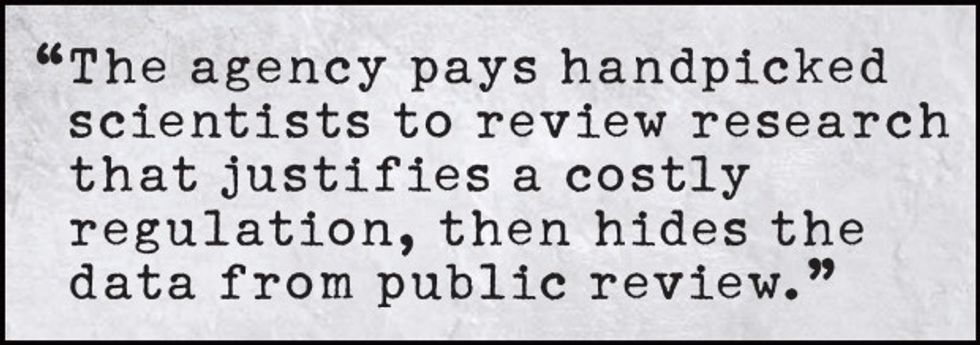
But the Obama White House was very aware.
Cass Sunstein, the White House regulatory czar, sent an email to the Richard Windsor account and told Jackson, “I have your special email from my friend Lisa H.—hope that’s ok!.”
Also, deputy director for the White House Council on Environmental Quality, Gary Guzy, asked Jackson if she had an assistant named “Richard.” In a reply, Jackson corrected him, saying, “Its Lisa Jackson and that’s my private email.”
The Senate EPW report said, “This exchange illustrates yet another example of the Richard Windsor account defying transparency norms. It appears Jackson merely handpicked individuals, in and out of the government, with whom she shared her ‘special’ email address, yet Congress and the public were excluded.”
And lobbyists were also very aware of who “Richard” really was, which surprised no one since the Obama administration’s pledge to keep lobbyists at arm’s length turned out to be about as sincere as the whole transparency lark.
Alison Taylor, a vice president for Siemens, emailed the “Richard Windsor” account in December 2009 to find out if Jackson “might be able to spare a few minutes to meet with Siemens’ global sustainability officer (who is my boss) Barbara Kux,” the Washington Free Beacon reported. “She’d like to meet you and to express her support for your good work on climate.” Taylor had lobbied the EPA and other agencies in 2009 on behalf of Seimans, according to the Center for Responsive Politics. Jackson agreed to the meeting and sent a second email from the “Richard Windsor” account that said, “P.S. Can you use my home email rather than this one when you need to contact me directly? Tx, Lisa.”
****Get more exclusive reports in TheBlaze Magazine****
Sierra Club Executive Director Michael Brune sent messages to Jackson’s personal Verizon email address, which did come out in a public records request. Nevertheless, agency business is not supposed to be done with personal email accounts.
Add to that, Michael Martin, CEO of Effect Partners, who, on March 4, 2010, corresponded with “Richard Windsor” after Martin was unable to reach the administrator through her personal email address, according to the Senate committee’s findings.
“Hi Richard, Thanks for your help in getting this information to Lisa this last week....If you are still there, could you please call me at [redacted],” the email said. Jackson, posing as “Richard,” replied: “Michael, Robert Goulding will call you tomorrow. Thanks Richard!”
There is no way of being sure that signing the emails as “Richard” was done with a wink and a nod to lobbyists. But otherwise, Jackson used the email account to deceive the public. Either option is troubling.
Interestingly enough, the EPA’s Office of Inspector General gave the agency a near pass on its email scandal while insisting that the agency make some changes.
“We found no evidence that the EPA used, promoted or encouraged the use of private ‘non-governmental’ email accounts to circumvent records management responsibilities or reprimanded, counseled or took administrative actions against personnel for using private email or alias accounts for conducting official government business,” the September 2013 inspector general report said.
But the report did say that the EPA lacks record management policies and procedures regarding private email account usage; that the EPA lacks records management training for private and alias email; and that the agency lacks practices for collecting and preserving records for employees.
Vitter did not buy the IG’s “no evidence” conclusion.
“Remarkably, in conducting its investigation of EPA email practices, the OIG never examined in any way, actual staff emails,” Vitter said. “As it turns out, the OIG handled the process in such a way that inappropriately provided cover for certain EPA officials.”
****Get more exclusive reports in TheBlaze Magazine****
Despite seemingly bending over backward to give the agency the benefit of the doubt on emails, the Office of Inspector General has not been appreciative of other secrecy efforts by the EPA.
A November 2013 IG report accused the agency of classifying documents that should not be classified under national security laws. Inspector General Arthur Elkins and his staff testified three times to Congress in 2014 complaining that the EPA’s Homeland Security office routinely blocks access to information for audits and investigations. One IG official even said that a Homeland Security office official tried to assault her when she went to his office as part of an investigation. There was reportedly an arrest warrant, but prosecutors did not press charges. On another front, the IG’s office reported that EPA officials with the Chemical Safety and Hazard Investigation Board also withheld documents sought in an investigation.
Secret Science
This is not entirely an Obama administration problem. The Society of Environmental Journalists, a group representing about 1,350 environmental reporters, said in a statement that the EPA was media friendly for many years, but “media policies were substantially eroded during the administration of George W. Bush, and they’ve only gotten worse under President Obama.”
That said, the agency’s culture of secrecy might very well have begun in the final years of the Clinton administration.
In December 2013, veteran EPA official John Beale—legendary in the agency for being the architect of sweeping clean-air regulation in the late 1990s—was sentenced to 32 months in federal prison after pleading guilty to theft of nearly $900,000 from the government. (Beale managed to cultivate a perception among colleagues that he worked for the CIA and the EPA was his cover. He did not in fact work for the CIA, but it prevented his employer from saying much when he took nearly two years off work while collecting a paycheck.)
What Beale left was a legacy of not only criminal behavior but also of what critics call “secret science” at the EPA, meaning that the agency pays handpicked scientists to review research that justifies a costly regulation, then hides the data from public review. It could just as easily be called “trust-us science,” and it continues today.
As an official in the Office of Policy, Analysis, and Review at the EPA’s Air and Radiation Office, Beale led the EPA in the far-reaching 1997 regulation of National Ambient Air Quality Standards (NAAQS) for Ozone and Particulate Matter. Beale became what one Senate committee report called “the gatekeeper for critical information throughout the process.”
The regulation was based on two suspect studies—one of which even the EPA’s own scientists warned wasn’t peer reviewed. The confidential “Beale Memo” showed how Beale pressured other EPA offices to back off any internal criticism of science behind the NAAQS regulations, establishing a pattern of selective outcomes for future regulations.
****Get more exclusive reports in TheBlaze Magazine****
The memo was leaked to Congress during the Beale case, according to a Senate EPW Republican staff report. This prompted lawmakers on Capitol Hill to call for the agency to subject its science to outside review. If the EPA is confident in its own research, one might assume it has no reason to object.
Wrong.
The call for transparency—even after the Beale scandal—was greeted with howls.
McCarthy, in a speech to the National Academy of Sciences last April, was defiant at the suggestion, arguing that those who wanted to review the science of her EPA were actually anti-science.
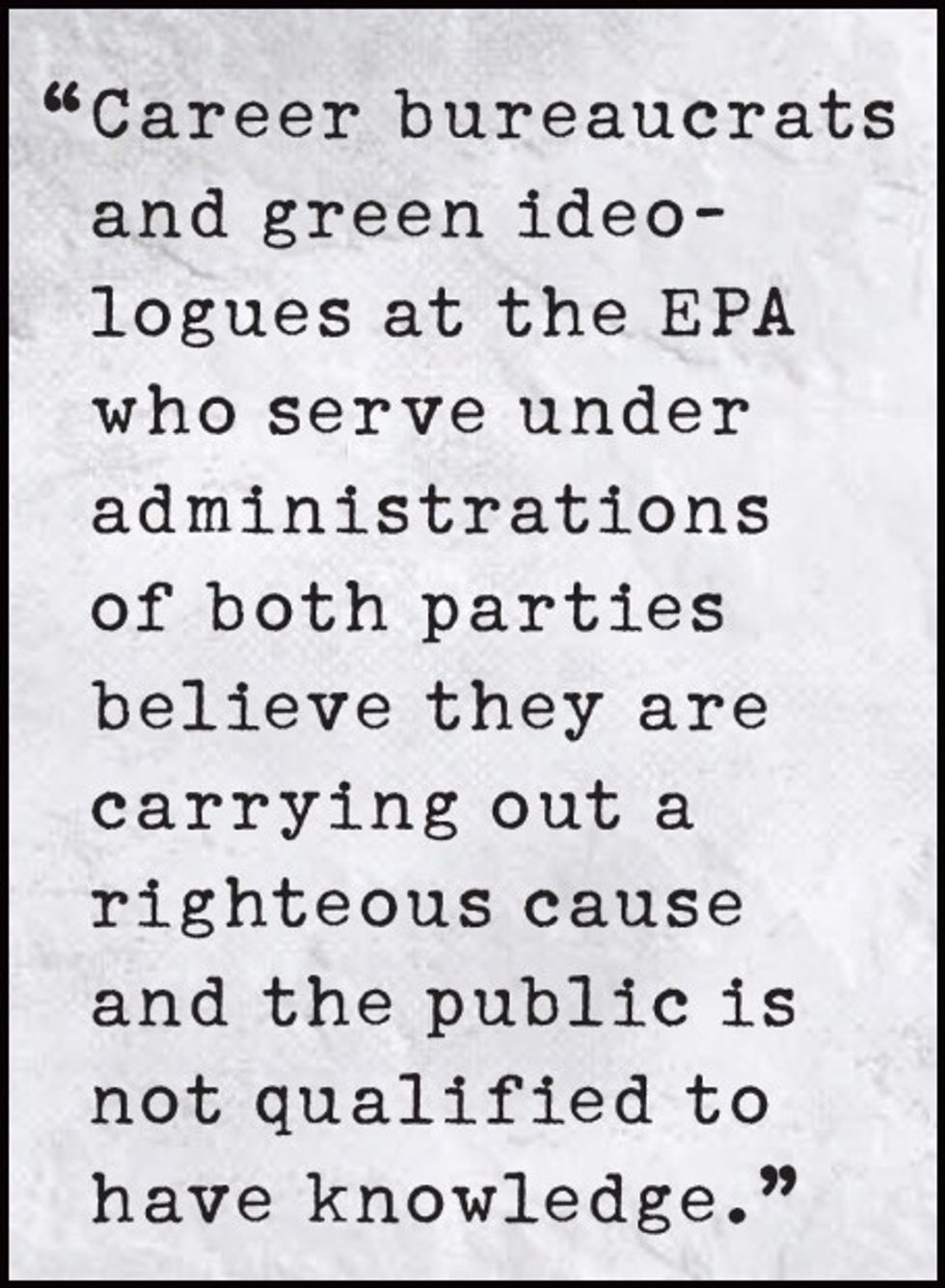
Certain in her righteousness, McCarthy accused critics of “manufactured uncertainties.”
The problem with her straw man argument is that many scientists support more EPA transparency—80 scientists signed a letter to Congress in support of legislation to require the EPA to base its regulations on data available to the public. This included George Wolff, former chair of the EPA’s Clean Air Scientific Advisory Committee in the Clinton administration, and Forrest J. Remick, former commissioner of the U.S. Nuclear Regulatory Commission in the George H.W. Bush administration.
Other notable scientists testified to Congress about the need for making the science public, which they said would make the regulations more accepted and more enforceable. These included Dr. Stanley Young, assistant director for bioinformatics at the National Institute of Statistical Sciences, and Michael Walls, vice president of regulatory and technical affairs at the American Chemistry Council.
****Get more exclusive reports in TheBlaze Magazine****
The trend in science is moving toward transparency, also, as the journal Nature says, “the preferred way to share large data sets is via public repositories.”
The secret-science problem has become even more pronounced given a report by the EPA inspector general from last May that said the EPA “lacks due diligence process for potential fraudulent environmental data.” The agency plans to have a revised policy implemented by fiscal year 2017 to tackle fraudulent data.
A separate IG report from April demonstrates that, in some cases, not revealing science can be a threat to someone’s life or health. In April, the IG faulted the EPA for getting consent to expose human test subjects to exhaust, diesel and other pollutants in 2010 and 2011 without warning them of the long-term damage and cancer-causing risks of exposure. The EPA’s research found a three-in-1-billion chance of cancer from the short-term exposure to the gases, which, though marginal, the IG said should have been communicated to the test subjects. EPA researchers should have told subjects of “any potential cancer rise” so they could “make the most informed decision possible about whether to participate in the study,” The Hill reported of the IG report.
If a growing number of credible scientists and the IG are not enough to convince someone that complaints of EPA secrecy aren’t coming from the choir of disgruntled “climate deniers,” one should see what the Society of Environmental Journalists has to say about the agency restricting scientists doing contract work with the EPA from talking to journalists and about the EPA’s demands for on-background-only interviews with officials.
“The EPA is one of the most closed, opaque agencies to the press,” read a statement issued by SEJ executive director Beth A. Parke and SEJ director of freedom of information Joseph A. Davis after McCarthy was nominated in 2013 to run the agency.
An August letter from the SEJ and other transparency groups to McCarthy said, “We write to urge you to clarify that members of the EPA Science Advisory Board (SAB) and the twenty other EPA science advisory committees have the right and are encouraged to speak to the public and the press about any scientific issues, including those before these committees, in a personal capacity without prior authorization from the agency.”
Cabal of Progressive Billionaires
One reason for the secrecy is that more transparency could reveal the depth of influence far-left billionaire-funded pressure groups have over the agency. The three main groups are the George Soros-bankrolled Democracy Alliance, the Environmental Grants Association and the Divest/Invest movement, according to a separate Senate report.
These organizations lobby the EPA for certain policies, and there is a revolving door of EPA executives-turned-lobbyists—-and sometimes back to the EPA. This leads to former activists working for EPA to push for federal funding to their former employers, the Senate report issued last July said. Under the Obama administration, the EPA has given more than $27 million in taxpayer-funded grants to groups such as the Natural Resources Defense Council and Environmental Defense Fund that have strong ties to various senior EPA officials.
****Get more exclusive reports in TheBlaze Magazine****
The EPA regularly pushes taxpayer-funded grants to the Natural Resources Defense Council, the organizations that designed the controversial power plant regulation the agency released in 2013, the New York Times reported.
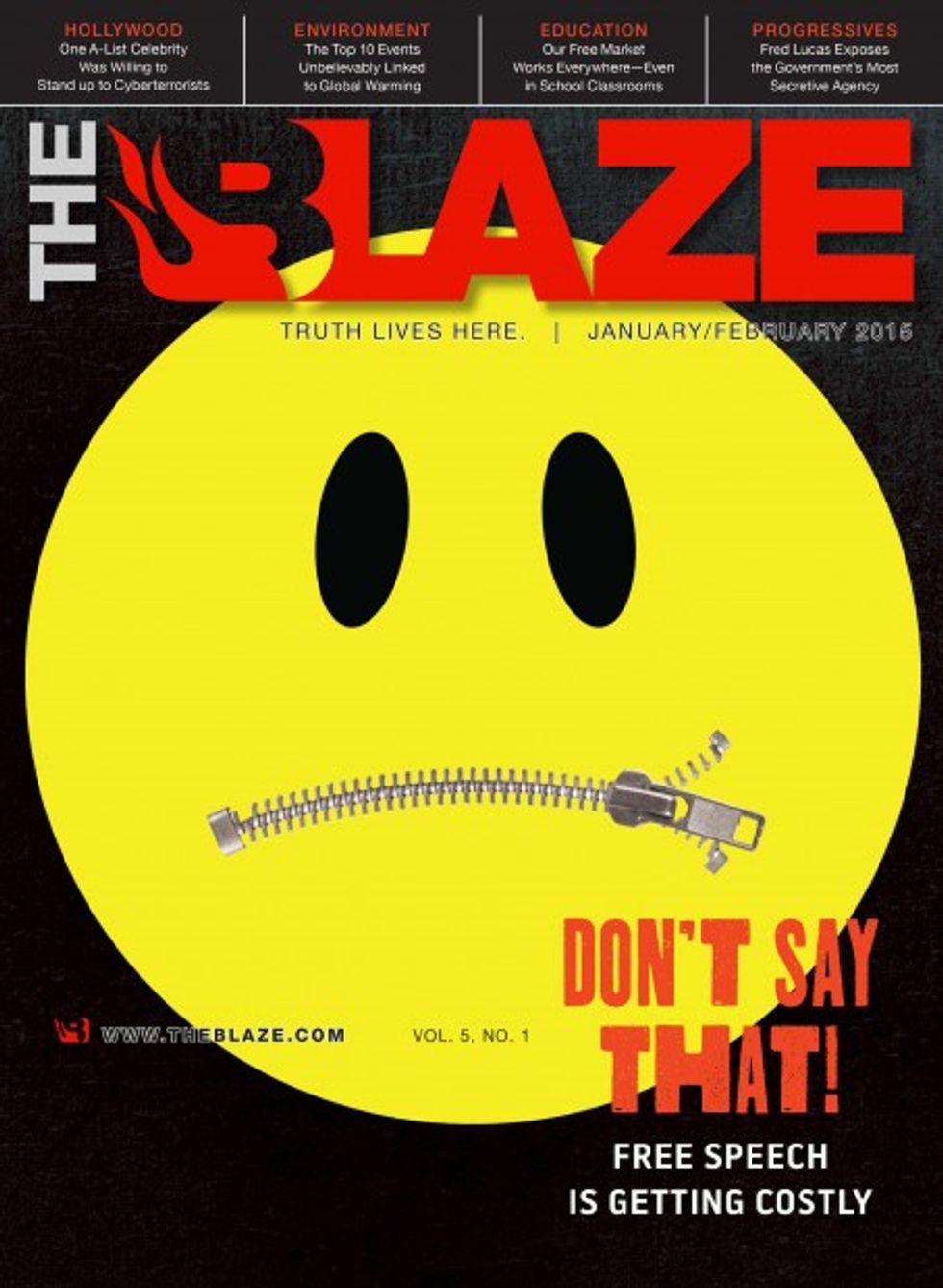
The EPA, like most other federal agencies, became less transparent under the Obama administration. But again, it’s not an Obama-only problem, as the environmental journalists’ group points out. The bigger problem is what was on display in McCarthy’s defiant comments demonstrating how aghast she was about the notion of making their data public. Career bureaucrats and green ideologues at the EPA who serve under administrations of both parties believe they are carrying out a righteous cause and the public is not qualified to have knowledge. Transparency doesn’t matter because the ends justify the means. It’s why the “fishbowl memo” is such a punch line.
Want to leave a tip?
We answer to you. Help keep our content free of advertisers and big tech censorship by leaving a tip today.
Want to join the conversation?
Already a subscriber?
more stories
Sign up for the Blaze newsletter
By signing up, you agree to our Privacy Policy and Terms of Use, and agree to receive content that may sometimes include advertisements. You may opt out at any time.
Related Content
© 2025 Blaze Media LLC. All rights reserved.
Get the stories that matter most delivered directly to your inbox.
By signing up, you agree to our Privacy Policy and Terms of Use, and agree to receive content that may sometimes include advertisements. You may opt out at any time.
